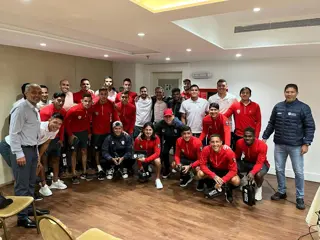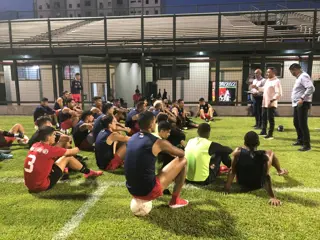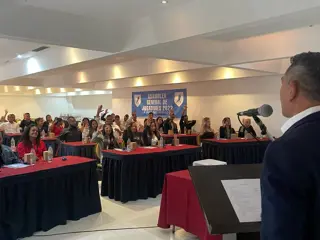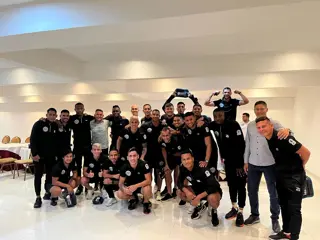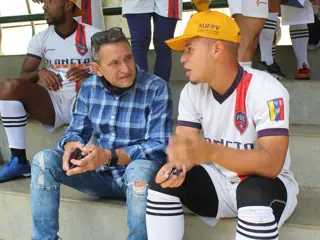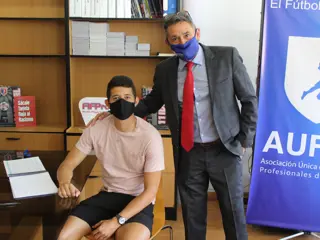News
AUFPV: Growing for the benefit of Venezuelan footballers
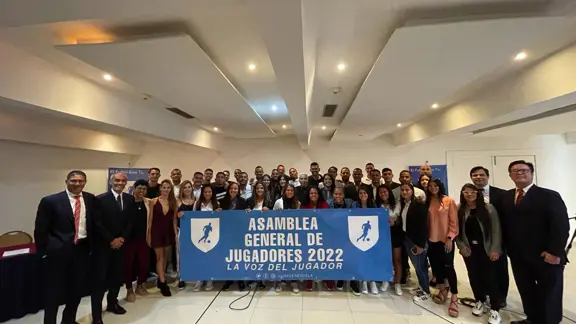
FIFPRO is a federation of player unions. Currently, 66 organisations are associated within FIFPRO to support professional footballers worldwide.
In the latest of our Union in Focus series, we look at the Asociacion Unica de Futbolistas Profesionales de Venezuela (AUFPV), which has made great strides in recent years on behalf of its players.
History
Although the Liga Mayor de Futbol (Major Football League), the first professional football competition in Venezuela, was created in 1957, it was not until the 1980s that a group of ex-players and friends considered the need for an association to safeguard the rights of professional players.
The leaders of the initiative, among many others, were Jose Clemente, Fernando Nano Clemente, Gustavo Roque, Cheche Vidal and Jose Ramon Lopez, the current president of the AUFPV.
“All this arose from the need to have a union to look after the players, especially in relation to salaries, where their rights were not being respected. A group of us got together, players with the best of intentions, and that’s how we started,” said Lopez.
In 1988 they managed to get the organisation legally constituted and the first president was Jose Clemente, an engineer who had played in the Venezuelan national team. The first member of the new association was Lopez himself, who served his first term as president from 1994 to 2012.
But in general, they were years of ups and downs and difficulties in seeking to defend the rights of footballers in Venezuela.
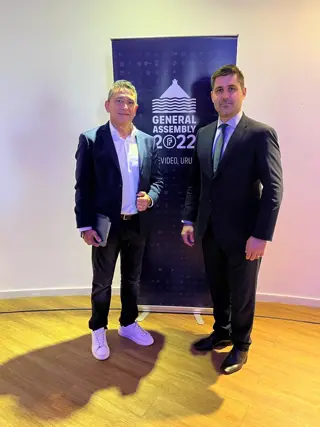
“We were never able to establish ourselves and make consistent progress because everyone had personal interests and issues, and we had no resources,” said Lopez. “I resolved cases mostly through a rapport with the federation rather than through legal channels.”
The turning point came in 2014 when the AUFPV became a full member of FIFPRO.
“FIFPRO took us in and we finally became a company.”
Current situation
Almost nine years have passed since that milestone in the life of the AUFPV and the scenario has changed completely. “What we have now is very different from what we had before,” said Lopez, who returned to the presidency in 2021 and highlights the fact that they have overcome difficulties that presented themselves on the way.
“The most difficult part has been getting accepted by the federation, the league and the players themselves – getting that credibility and helping people understand that we are a body that is not there to create confrontation, but one that looks for solutions and consensus.”
In a similar context to that of other countries, in which non-payment and legal problems are more common than one would wish, the AUFPV can now offer its players legal, press and communications, administrative and accounting departments, each with a well-defined working protocol.
As well as the legal side, health and education are cornerstones of the expansion policy.
“That is where we have focused the objectives of this board of directors. We want to offer players something they have never had in Venezuela,” the AUFPV president said.
In the health area, the AUFPV provides a gym, physiotherapy, dentistry and orthopaedics. In education, it offers courses that enable footballers to acquire “a preparation for the future, other tools beyond football, because there is not enough room for so many people”.
The options range from a bilingual secondary school diploma to sports management courses — through CONMEBOL — and the broad spectrum of education that FIFPRO South America offers to members in the region.
As Ricardo Andreutti, coordinator of the education division of the AUFPV, proudly points out, “we are the country with the most participants in all the programmes in the continent and in completion of those programmes”.
Out of a total of 938 enrolments, Venezuela provides 221 students.
Objectives
Among the various goals that the AUFPV has set itself for the future, one is to achieve greater integration of women’s football.
“It’s a very delicate subject because this type of football is still in its infancy [here],” said Lopez.
“In Venezuela men’s football is barely profitable and women’s even less so at the moment. This is an obligation for CONMEBOL but it’s a challenge because the right conditions do not yet exist for the girls. We are recruiting them, persuading them, telling them we’re there for them. This is something that the federation and the league must understand, that there must be no discrimination against women players.”
In the educational sphere, the aim is to develop increasingly from the sociocultural reality of Venezuela.
“The first focus of attention is to halt the current school dropout rate in Venezuela. A first step is to ensure that footballers complete their school activities and serve as models for those around them to follow their example,” said Andreutti.
“Then we need to be able to progress at the level of infrastructure, forming alliances with higher education or university institutions, developing an academic curriculum in the sports area endorsed by the highest government authorities in the field of education. This will not only produce a social impact but also train the future leaders of professional and amateur football in Venezuela.”

